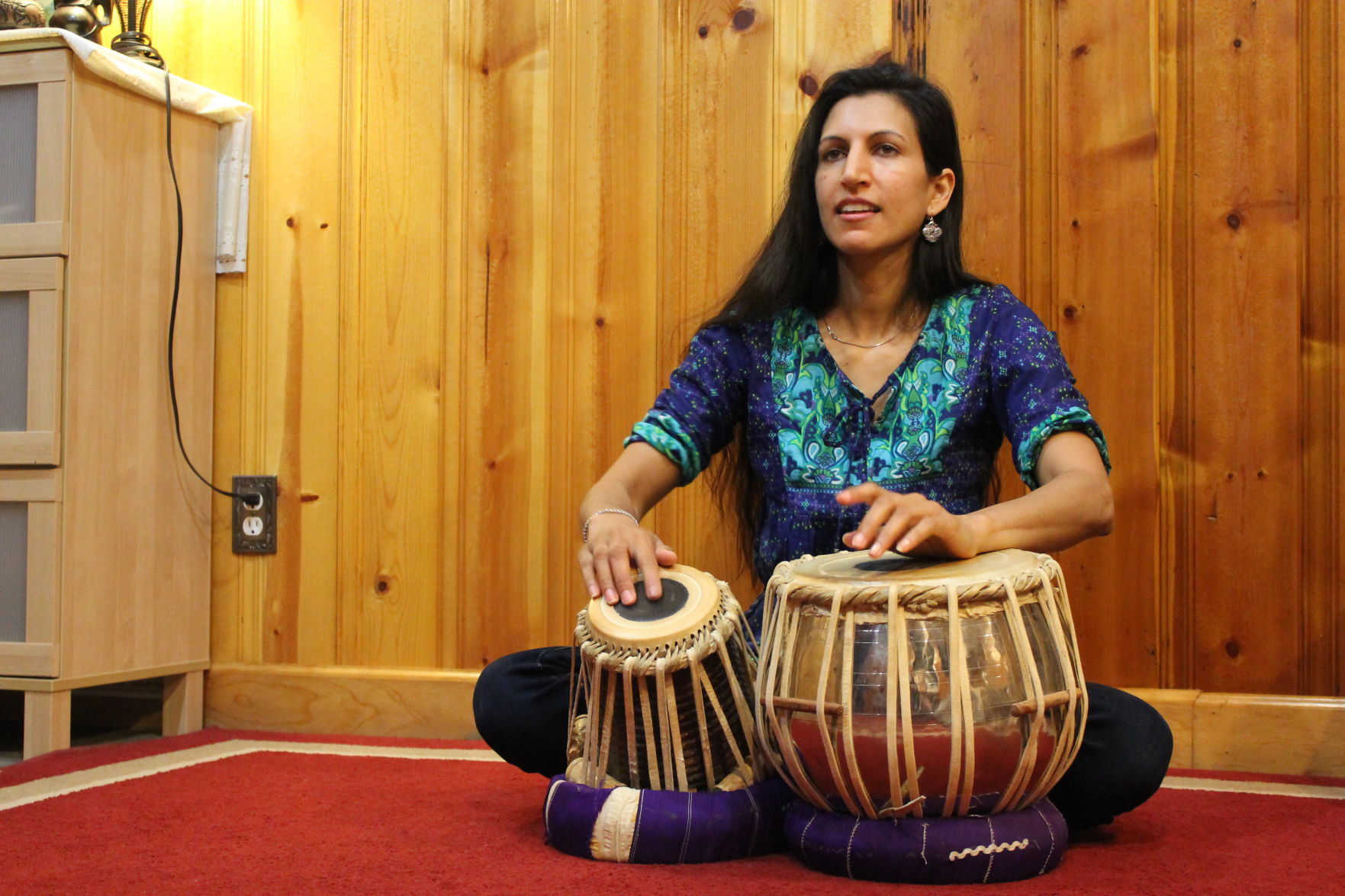Only a handful of women worldwide play the centuries-old Indian tabla drums professionally, and one of them lives — and teaches — in New Hyde Park.
Sejal Kukadia runs the Long Island branch of the Edison, N.J.-based Taalim School of Indian Music in the basement of her Eric Lane home. She teaches individual and group lessons there and across Nassau County.
Her classes have grown steadily since she started teaching there in 2007, she said. New Hyde Park’s Indian population has grown in that time, too.
But on Saturday mornings, Kukadia’s group practice sessions are filled with Indian students and those of other races who want to explore the tabla’s complex rhythms and connect with another culture, she said.
“It’s beneficial all around to create cross-cultural exchange,” Kukadia said. “It makes the world a little bit smaller, and giving non-Indian audiences a taste of Indian music, Indian dance, Indian language, all those things … it gives them the awareness that this community exists, just next door.”
Kukadia, a native of the Albany area, went to India in 1996 in search of a master of the tabla, a set of two drums traditionally played by men. When she met Pandit Divyang Vakil, her “guruji,” or “respected teacher,” she said it was “the first day of the rest of my life.”
She spent four years in India with him, learning the tabla through traditional oral methods, and later helped him start the Taalim School for Indian Music in 2002, she said. The school also operates in New York City, Connecticut, Pennsylvania and Virginia.
Kukadia now teaches students from age 5 to 75, she said. She is a “student-centered” teacher who can engage beginners without boring more advanced students, said Richard Moscatelli, 50.
“You can hear the excitement in her voice and see the glint in her eye, so you know she has the passion for it,” said Moscatelli, a Centereach resident who’s taken Kukadia’s classes since January.
Kukadia came to New Hyde Park seven years ago because she has family in the area and many of her students lived on Long Island, she said. The location gives her easy access to students who live further east and to New York City, where she often gives concerts and workshops, she said.
There is a high demand for Indian classical music in the area, Kukadia said, and her classes are in good company — there are five Hindu temples several Indian and South Asian businesses nearby, she said. She also teaches classes with the Young Indian Cultural Group at the Herricks Community Center.
“It’s just kind of the best of both worlds,” she said. “I can have my suburban students come, parents come, build great relationships, but I can also head right into the city and take advantage of the diverse cultural, musical benefits of that as well.”
Aside from white people, Indian people are New Hyde Park’s largest single ethnic group, accounting for 19.4 percent of the population in the village and unincorporated areas as of 2014, U.S. Census Bureau data shows. That number grew from 16.7 percent in 2011.
“Name an ethnicity and it’s there in Nassau County,” said Moscatelli, who teaches mathematics at Nassau Community College. “It’s in my calculus class.”
About 70 percent of Kukadia’s students are Indian and most are men, she said, but more non-Indian people and girls have started classes in recent years.
One of her most advanced students is 19-year-old Deepa Paulus, whom Kukadia has taught for eight years.
While she only knows about 10 women worldwide who play tabla professionally, Kukadia said there is a growing number of girls and women learning the instrument in India and in the U.S.
The Taalim School has two women teaching tabla. Kukadia said her visibility as a tabla player and teacher helps encourage more girls to take up the instrument.
“A lot of my students are young girls,” she said. “It helps that the teacher, myself, is a woman, so it’s attracting more and more females.”
The tabla’s complex rhythms attract many non-Indian musicians to Kukadia’s classes, she said.
Playing the tabla is a cultural experience that’s valuable to living in a diverse society and keeps musicians on their toes, said Moscatelli, a lifelong drummer who spent a year learning to play tabla rhythms on his jazz drum set.
“It opens your mind,” he said. “It makes you not feel stale in your playing.”



